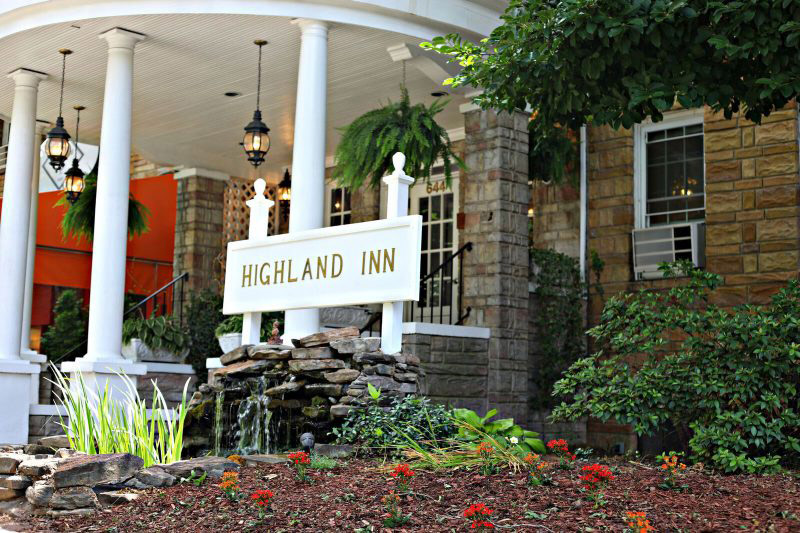
Photograph courtesy of Highland Inn
The Highland Inn has new owners who promise they won’t raze the historic structure, but big changes are on the way.
Last summer, the rumor mill swirled with the prospect of demolition, as then-owner Thomas Carmichael appeared to be shopping the idea of sending a wrecking ball into the century-old hotel. He had applied for a demolition permit with the City of Atlanta, his attorney said, to weigh his options as the building slowly withered with age and the coronavirus pandemic pained the hospitality industry.
On Friday, a young Atlanta development firm, Canvas Companies, inked a check for the structure, as well as the small businesses flanking it—including a barber, antique shop, and cosmetics store—with intentions to breathe new life into the property.
In an interview with Atlanta, the developer’s managing partners, Benjamin McLoughlin and Michael Garber, kept the price tag a secret (though that information will become public record soon) but divulged some about their plans for preserving of one of the city’s most historically and architecturally significant landmarks.
Before closing, Garber said, “We’ll probably take the first few months [of ownership] to figure out what the neighborhood needs.” McLoughlin said observers of their venture can probably expect serious renovations and what he calls “flexible housing” options. (Imagine something between a hotel and an apartment complex, with short-term rentals available.) It’s “debatable” whether a traditional hotel component will ultimately remain, McLoughlin said.
The inn shuttered late last month, with the sale pending. Now, the development duo anticipates the North Highland Avenue building will be upgraded in phases, meaning they might be able to reopen—at least temporarily “before we start heavy renovations,” McLoughlin said—some of the hotel operation while crews inspect and renovate parts of the buildings.
McLoughlin said it’s crucial to “maintain the soul and the charm of the building” as they make repairs. Garber added, “If you buy a vintage ’60s Mustang, you’re going to modernize some components to make it safe—put in new seatbelts and stuff like that. But, at its core, it will still be that original Mustang.”
The name could change, Garber said, but thanks in part to the newly established Poncey-Highland Historic District regulations, much else will have to remain—at least to the naked eye—very much the same. McLoughlin said they’ll be referring to photographs from the 1920s and ’30s to help them keep the original aesthetic.
“We generally don’t alter the exterior footprints,” McLoughlin said, nodding to their previous projects. “We don’t expect to this time.”
The courtyard dissecting the hotel, however, could undergo a major overhaul, he said. “We want it to be a true public space,” McLoughlin said. “It could be a cool pocket park like you have in New York.” Future patrons can also look forward to a new cafe, he said.
The existing businesses nestled next to the inn will likely stay, the duo says. Don’t expect some swanky or mainstream operation rooting in the old site. “If you have a cool old building and you put a Starbucks in there, it’s still a Starbucks,” McLoughlin said. “You lose what’s cool and interesting at that property.” In all likelihood, “rent will not go up substantially; [but] it will go up somewhat.”
Garber and McLoughlin said the revamp of the historic property will likely take two years and some change to complete.













